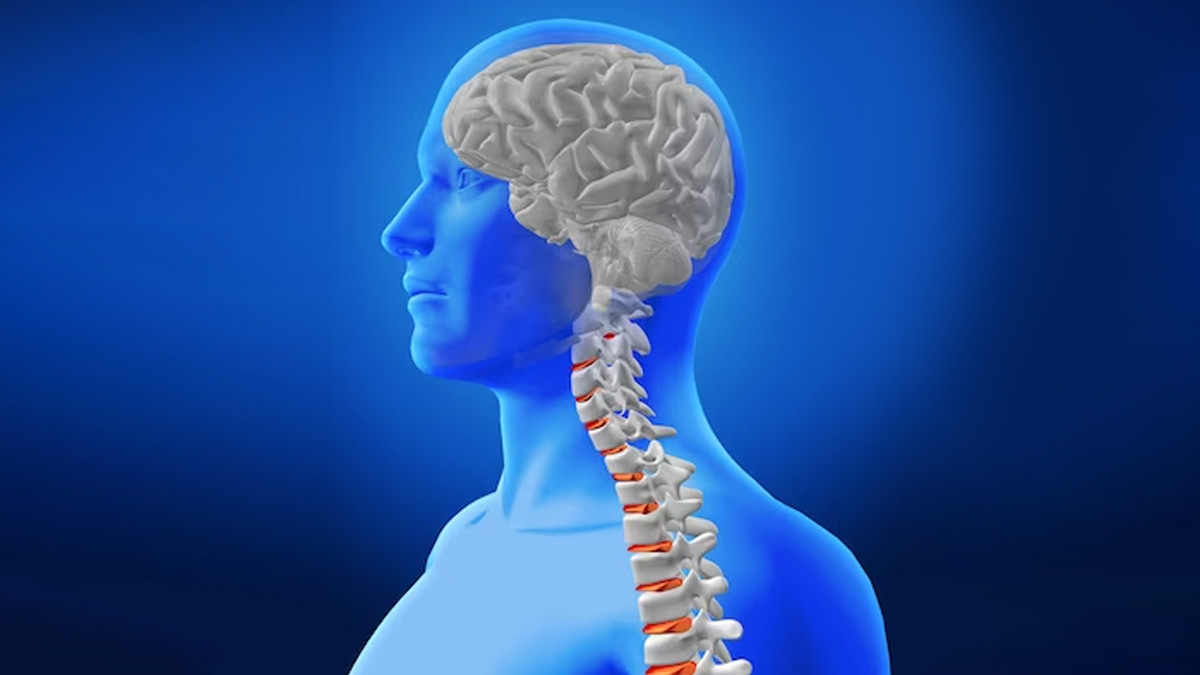
Any condition that puts pressure within the spinal canal causes spinal cord compression. As your spinal cord is protected by a stack of backbones called 'vertebrae', and they also hold your body upright. The spinal cord has nerves, and these nerves run through the openings that are in between the vertebrate & carry messages to and fro from the brain to the muscles. Spinal cord compression can occur anywhere from the neck to the lower back.
Table of Content:-
In an interaction with OnlyMyHealth, Dr Jayesh Sardhara, Senior Consultant - Neuro & Spine Surgery, Fortis Hospital, Mulund, Mumbai, explained all about spinal cord compression.
Common Cause Of Spinal Cord Compression
The most common cause of spinal cord compression is due to wear and tear which occurs gradually. This is known as degenerative disc disease due to the loss of water content in the disc space. Older people, above the age of 50, tend to develop this spinal cord compression. Other reasons which could lead to spinal cord compression are as below, they can occur suddenly & can affect a person at any age:
- Abnormal spine alignment (Scoliosis)
- Injury to the spine
- Spinal tumor
- Certain bone diseases
- Rheumatoid Arthritis
- Infection
Coordination may suffer as a result of spinal cord compression. This includes fine muscular coordination as well as daily actions like scribbling or buttoning a shirt. Walking style of a person, reflexes, range of motion, and muscular movement may all be affected by spinal cord compression.
Also read: Health Benefits Of Keeping Your Spine Straight. What Happens When You Don't

Who Can Develop Spinal Cord Compression
Anyone can have a spinal cord injury or develop a health condition that causes spinal cord compression. While injury is the most common cause, various other variables may increase the likelihood of spinal cord compression developing.

Poor lifting techniques might increase a person's chance of damaging their neck or back, resulting in spinal cord compression. Additionally, patients with osteoarthritis and inflammatory arthritis are more likely to suffer spinal cord compression.
Symptoms
Symptoms of an affected spinal cord compression include pain, weakness, numbness, and loss of bladder or bowel control.
Also read: Improve And Increase Spine Mobility With These 5 Effective Yoga Asanas
Depending on the severity, the patients may require supportive care or emergency surgery. If compression becomes severe at the cervical spine in the neck, a condition called 'myelopathy' may happen. If an individual is showing any of the below signs they should immediately consult a doctor:
- Loss of bowel or bladder control
- Severe numbness on any part of the leg
- Severe pain and weakness in one or both legs & difficulty in walking
Treatment Options
“Sometimes patients require early nerve decompression surgery. In the last few decades, minimally invasive spine surgery (nerve root decompression via endoscope by disc removal) is known to be a safe surgery option that gives faster recovery”, says Dr. Jayesh.
There are lots of myths about spine surgery. The most common one is 'spine surgery may lead to paralysis and loss of independence'. In the era of advanced endoscopic spine surgery, this has become a part of daycare spine surgery. Minimally spine surgery is very safe, effective, and highly recommendable in terms of rapid postoperative clinical outcomes
Also watch this video
How we keep this article up to date:
We work with experts and keep a close eye on the latest in health and wellness. Whenever there is a new research or helpful information, we update our articles with accurate and useful advice.
Current Version
